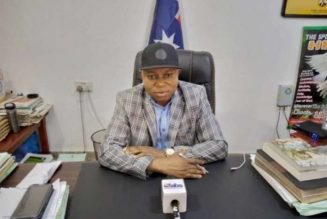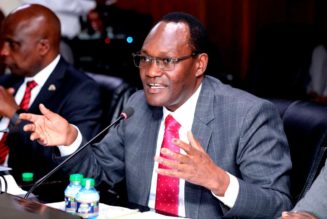Columnists
Upcoming Dubai summit should break climate finance deadlock
Tuesday November 21 2023

COP28 President-Designate, Dr Sultan Al-Jaber, with EU Energy and Environmentministers in Spain to build momentum and foster cooperation for a successful andinclusive COP28
Recently the United Kingdom surprised many when it announced a reversal of the initial targets of selling new petrol and diesel cars from 2030 to 2035.
And that was not it. The country will also slow down plans to phase out gas boilers and it has flatly rejected calls to regulate efficiency for homeowners.
Facing a consequential election, in a year’s time or so, Prime Minister Rishi Sunak asserted that plans to expand oil and gas projects in Britain’s North Sea and drill for fossil fuels would go ahead despite objections from environmental groups.
What a sharp turn away especially coming two years after it hosted COP26 climate conference in Glasgow. And it comes just ahead of COP28 to be held in a few days in Dubai.
The International Energy Agency says fossil fuel demand ‘must fall by a quarter’ by 2030 to limit global warming, stepping up clean energy supply to avoid shortages and price jumps.
That notwithstanding, it shows how hard it will be to knock out dependence on fossil fuels as some countries cite competing priorities, especially those said to be among the world’s worst polluters.
Whereas it could be seen as what countries are grappling with, it also denotes a perceived lack of commitment to really live up to the hefty promises they have been making since 2009.
In 2015, at the COP21, countries committed to Nationally Determined Contributions (NDCs) – a climate action plan to cut emissions and adapt to climate impacts.
Developed countries were to provide financial resources to help developing countries meet their NDCs, pay for mitigation and adaptation, and mobilise more climate finance.
Fourteen years have passed without the West delivering the $100bn per year promised for mitigation and adaptation, or the Loss and Damage fund agreed more than a year ago.
The International Fund for Agricultural Development, a UN Agency based in Rome, Italy, says the global gap for financing adaptation is widening with costs in developing countries expected to increase to US$340 billion a year by 2030, and up to US$565 billion by 2050.
One could argue that the reversals or the snail’s pace at actioning the pledges is largely because of the delicate balancing act between committed climate goals and the development needs of their respective countries.
But another school of thought would argue that all along the world’s worst polluters have just perfected ways of dodging promises made and seeking refuge in the kraal of pressing domestic considerations.
And so, in a few days, world leaders will meet once again to talk more about what is required to mitigate emissions and help communities and economies to adapt. A key outcome of the next summit which the global south will be waiting for is addressing the deadlock on finance.
The writer is a former NTV Business anchor









